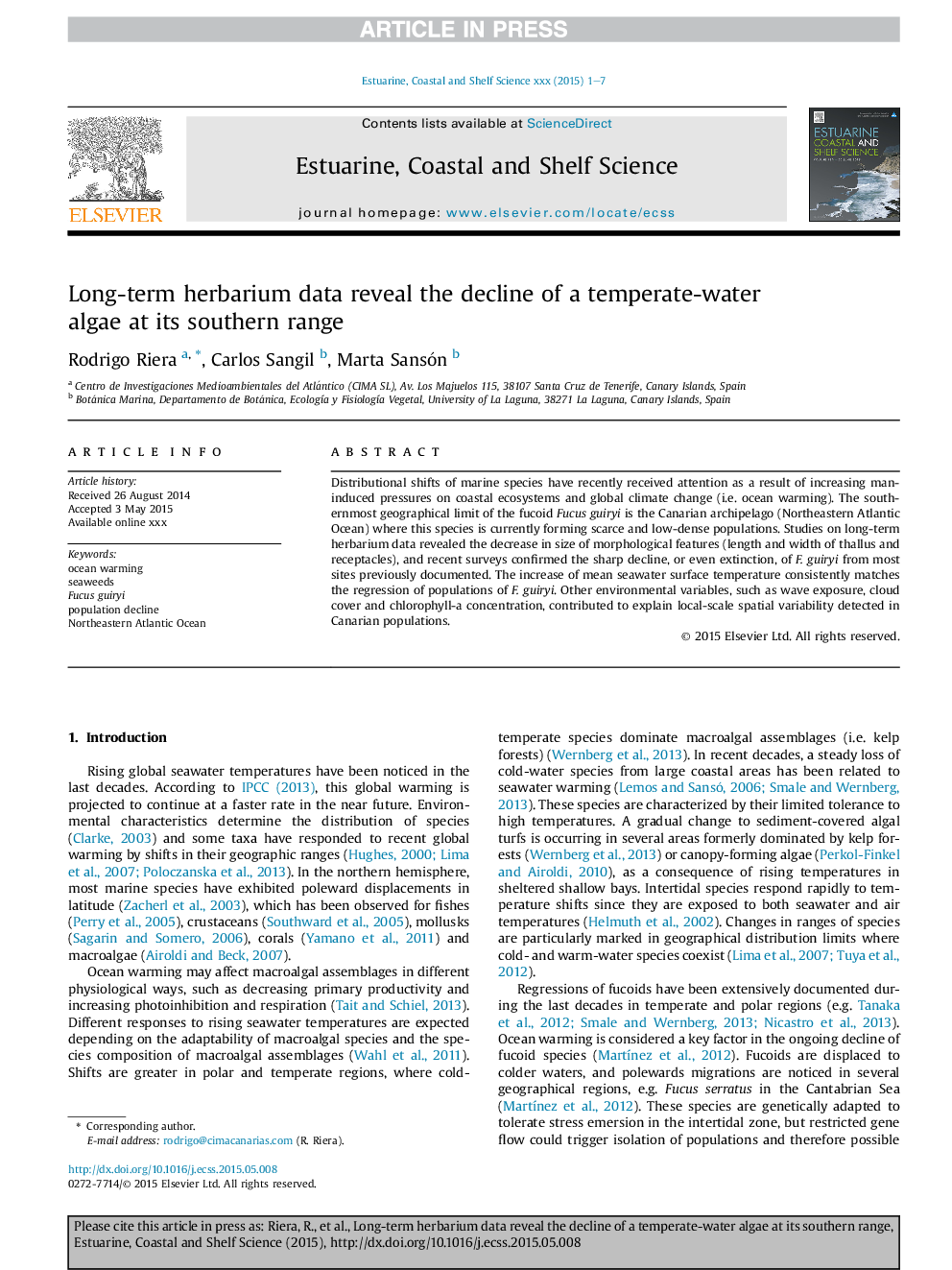| Article ID | Journal | Published Year | Pages | File Type |
|---|---|---|---|---|
| 6384627 | Estuarine, Coastal and Shelf Science | 2015 | 7 Pages |
Abstract
Distributional shifts of marine species have recently received attention as a result of increasing man-induced pressures on coastal ecosystems and global climate change (i.e. ocean warming). The southernmost geographical limit of the fucoid Fucus guiryi is the Canarian archipelago (Northeastern Atlantic Ocean) where this species is currently forming scarce and low-dense populations. Studies on long-term herbarium data revealed the decrease in size of morphological features (length and width of thallus and receptacles), and recent surveys confirmed the sharp decline, or even extinction, of F. guiryi from most sites previously documented. The increase of mean seawater surface temperature consistently matches the regression of populations of F. guiryi. Other environmental variables, such as wave exposure, cloud cover and chlorophyll-a concentration, contributed to explain local-scale spatial variability detected in Canarian populations.
Related Topics
Physical Sciences and Engineering
Earth and Planetary Sciences
Geology
Authors
Rodrigo Riera, Carlos Sangil, Marta Sansón,
